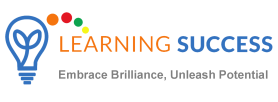Understanding the importance of year-end reflection can guide your child’s math education
At the end of each school year, it’s crucial to assess the effectiveness of the educational strategies that have been in place. This reflection is not just for educators but for parents as well. By evaluating what has worked and what hasn’t, you can better understand how to support your child’s learning journey. This process involves considering what to adopt, adapt, or abandon in terms of educational approaches, ensuring that your child’s math education is continually improving.

The End-of-Year Math Education Reflection
As a parent, you may find yourself at the end of the school year reflecting on your child’s progress in math, wondering about the impact of the educational strategies employed by their school. The reality is that schools may not always provide the consistent and effective support needed for your child’s math development. However, as a parent, you have the power to make a significant difference using available tools and resources to help your child succeed.
The dangers of hasty changes in educational strategies can impact your child’s learning
One of the challenges in education is the tendency to hastily abandon strategies that haven’t shown immediate results. This can be likened to restarting a flywheel, which requires significant effort to gain momentum again. For your child, this means potential disruption in their learning process. As a parent, it’s important to advocate for consistency and patience, allowing time for strategies to take effect before considering a change.
The one that scares me the most in that list is abandon. It’s scary. It scares me because I think about the flywheel analogy.
”
Prioritizing focus and coordination can streamline your child’s educational experience
Schools often face the challenge of managing multiple priorities, which can lead to a scattered approach to education. As a parent, you can help by encouraging a more focused and coordinated effort in your child’s math education. By working with educators to streamline goals and action items, you can ensure that your child’s learning experience is more effective and less overwhelming.
Key Takeaways:
Focus on Adapting Existing Strategies: Parents should encourage schools to adapt and refine existing educational strategies rather than frequently adopting new ones. The transcript emphasizes the importance of doing 'more better new' in that order, suggesting that schools should focus on strengthening and improving current practices before considering new initiatives. This approach can lead to more sustainable and effective learning experiences for children with learning challenges.
Understand the Importance of Clear Objectives and Indicators: It's crucial for parents to ensure that schools have clear objectives and measurable indicators for their educational strategies. The transcript highlights that without defined goals and ways to measure impact, it becomes challenging to assess the effectiveness of interventions. Parents can advocate for clarity in these areas to ensure that the educational support provided to their children is purposeful and can be evaluated for its effectiveness.
Advocate for Coordinated and Focused Support: Parents should advocate for a coordinated and focused approach to educational support, avoiding one-off professional development sessions that may not lead to sustained change. The transcript warns against the pitfalls of 'one-off PD' and stresses the need for a well-coordinated system that aligns with school improvement goals. This can help ensure that the support provided to children with learning challenges is consistent and integrated into the broader educational framework.
Emphasizing the development of Core Skills of Math can enhance your child’s understanding
One way to support your child’s math education is by focusing on the development of Core Skills of Math . These foundational skills are essential for building a strong mathematical understanding. As a parent, you can reinforce these skills at home through activities and exercises that align with what your child is learning in school. By doing so, you can help bridge any gaps in their education and ensure they are well-prepared for future challenges.
If you’ve been working on mathematical discourse and it’s like you’re noticing that the action step that you took this year maybe wasn’t yielding the results you were hoping for.
”Overcoming the challenge of inconsistent educational support through Problem Solving Skills can lead to a better life for your child
One of the specific challenges highlighted in the transcript is the inconsistency and lack of coordination in educational strategies, which can lead to ineffective learning experiences for your child. As a parent, your role is crucial in overcoming this challenge. By fostering Problem Solving Skills in your child, you can help them navigate these inconsistencies and develop resilience and adaptability. This not only enhances their math abilities but also equips them with lifelong skills that will benefit them in various aspects of life.
Empower your child’s learning journey with the Brain Bloom System, designed to provide consistent and effective support for children with learning challenges. Discover Brain Bloom System and help your child thrive in math and beyond.

